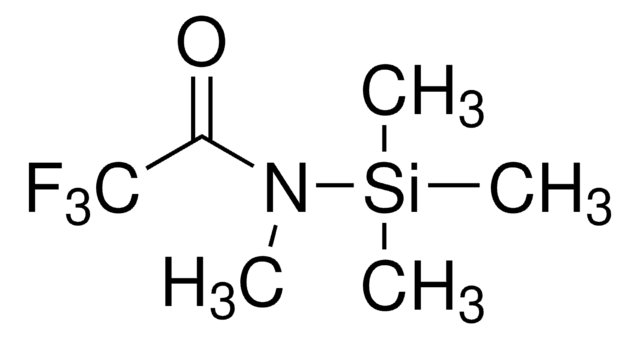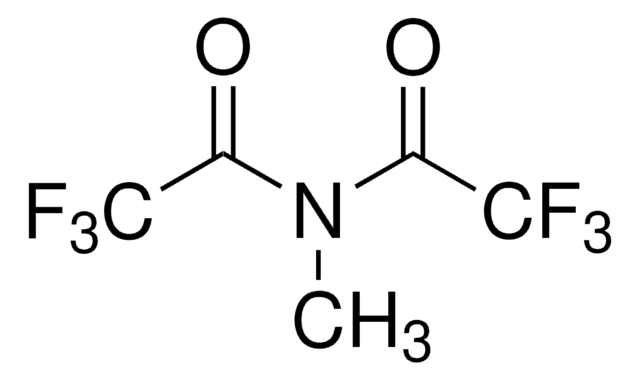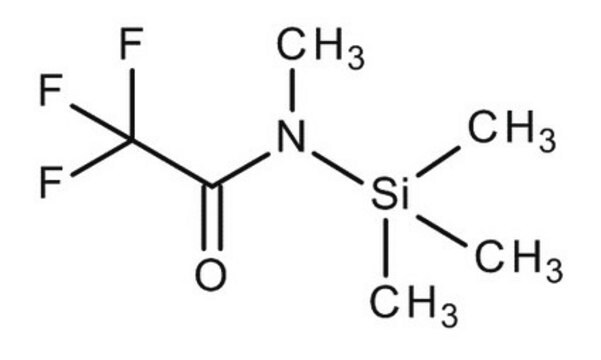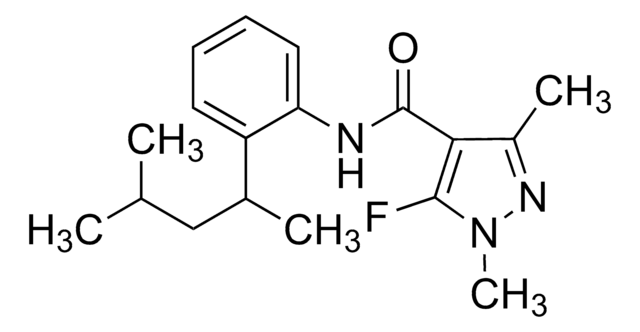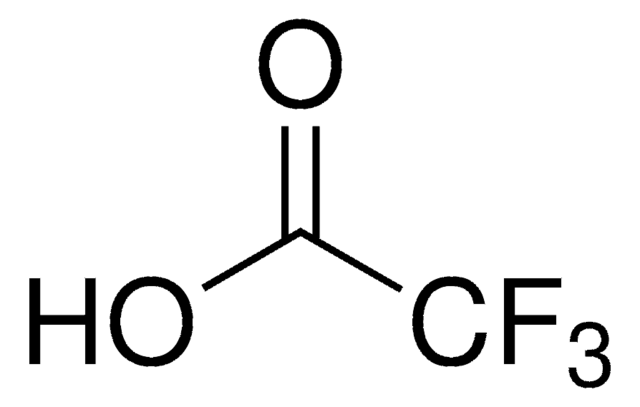78268
N-Methyl-bis-heptafluorobutyramide
for GC derivatization, LiChropur™, ≥96.0% (GC)
Synonym(s):
N-Methyl-bis-perfluorobutyramide, MBHFBA
About This Item
Recommended Products
grade
for GC derivatization
Quality Level
Assay
≥96.0% (GC)
form
liquid
quality
LiChropur™
reaction suitability
reagent type: derivatization reagent
reaction type: Acylations
technique(s)
gas chromatography (GC): suitable
refractive index
n20/D 1.323
density
1.686 g/mL at 20 °C (lit.)
SMILES string
CN(C(=O)C(F)(F)C(F)(F)C(F)(F)F)C(=O)C(F)(F)C(F)(F)C(F)(F)F
InChI
1S/C9H3F14NO2/c1-24(2(25)4(10,11)6(14,15)8(18,19)20)3(26)5(12,13)7(16,17)9(21,22)23/h1H3
InChI key
BCQYNSPESDDJBZ-UHFFFAOYSA-N
General description
- Improves stability of compounds by protecting unstable groups.
- It may confer volatility on substances such as carbohydrates or amino acids, which have so many polar groups that they are non-volatile and normally decompose on heating.
- It assists in separations not possible with underivatized compounds.
- Compounds are detectable at very low levels with an ECD.
Other Notes
Legal Information
Signal Word
Warning
Hazard Statements
Precautionary Statements
Hazard Classifications
Eye Irrit. 2 - Skin Irrit. 2 - STOT SE 3
Target Organs
Respiratory system
Storage Class Code
11 - Combustible Solids
WGK
WGK 3
Flash Point(F)
Not applicable
Flash Point(C)
Not applicable
Personal Protective Equipment
Regulatory Listings
Regulatory Listings are mainly provided for chemical products. Only limited information can be provided here for non-chemical products. No entry means none of the components are listed. It is the user’s obligation to ensure the safe and legal use of the product.
JAN Code
78268-1ML-F:
78268-BULK-F:
78268-VAR-F:
Choose from one of the most recent versions:
Already Own This Product?
Find documentation for the products that you have recently purchased in the Document Library.
Our team of scientists has experience in all areas of research including Life Science, Material Science, Chemical Synthesis, Chromatography, Analytical and many others.
Contact Technical Service